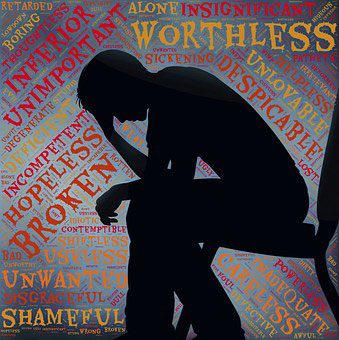Unhelpful thinking habits (1)
Have you recognised recently just how you think? Would you say you’re an Optimist? Pessimist? Or perhaps somewhere in the middle – a Realist? Also – what do you think about yourself? – are you kind to yourself or are you regularly putting yourself down?
I find that many of the people I meet are unaware of just how unhelpful their way of thinking is and how cruel they’re being on themselves. It is a surprise to them that actually – they don’t have to keep striving for constant self-improvement and perfection – rather they only need to change how they perceive themselves and be more comfortable with who they already are. So, I’ve decided to write a series of blogs around unhelpful thinking habits – what they are and how they can be changed.
So, starting with quite a common unhelpful habit – our inner self-critic. We all have one – it’s the inner voice that regulates our behaviour and picks us up when we know we should have done something better – you know – that voice that tells us to stop being lazy and get some housework done, or the one that tells us we’ve been eating too much and it’s time to start the summer body diet and exercise routine. Our inner critic is important and helps spur us on to do the things we need to do and helps guide us to better behaviour. Unfortunately, however if we’re not careful that inner critic can start to pick on us too harshly – becoming a cruel bully that shouts in our ear about all our faults and failures – and forgets all our good points. The one that tells us we’re not good enough, that we won’t amount to anything, that we’re a failure, useless, stupid, ugly, fat – yep, you’ve got the idea.
 One of the difficulties in changing our thoughts is that we can tend to believe whatever we think – and here’s an important point – our thoughts are not statements of fact – just because you think something doesn’t necessarily make it a fact. Most of what we think about ourselves is our opinion – and an opinion is only one person’s perspective – it doesn’t mean it’s a fact. So that’s the first key to challenging that inner critic – notice what you’re saying to yourself and then ask – is this a fact? What facts do I have that this thought is true?
One of the difficulties in changing our thoughts is that we can tend to believe whatever we think – and here’s an important point – our thoughts are not statements of fact – just because you think something doesn’t necessarily make it a fact. Most of what we think about ourselves is our opinion – and an opinion is only one person’s perspective – it doesn’t mean it’s a fact. So that’s the first key to challenging that inner critic – notice what you’re saying to yourself and then ask – is this a fact? What facts do I have that this thought is true?
Secondly, realise that some perspective is needed – yes, we all have weaknesses and faults – it’s part of being human! But we also have a lot of good points – strengths and characteristics that we often don’t give ourselves credit for. When we recognise, value and appreciate our good points we will feel a lot better about ourselves and we can re-gain our self-confidence. So how about blowing your own trumpet for a while and make a list of all your good points – what are you good at? What have you done for others? What efforts have you made to achieve things in life? What qualities have helped you gain and keep friends? What have others said about you that’s positive? What disciplines do you have that have helped you get through today (patience?, punctuality? dedication? hard-work?, kindness to others?). If you’re struggling, why not take a look at the list at this link: http://www.creativeaffirmations.com/positive-character-traits.html to help prompt you.
Once you have your list of positive qualities the next step is to read them – as much as possible – I would definitely recommend as a minimum that you read them at the beginning and end of every day – but if you can do more than that then please do. You see – when we’ve been in the habit of being cruel to ourselves it takes some effort to break that habit and listen in to the positive stuff. The more we can affirm ourselves and give those positives a fair hearing the more we’ll get used to being kinder to ourselves and help us gain a fairer perspective. Yes, we’ll still have some bad stuff, but this will be balanced out with some things to feel good about ourselves.
So, if you recognise that this will be a useful exercise then please give it a go. However, I recognise that for some, this will be really difficult – and there are usually some very good reasons for this that need to be identified and addressed, so please don’t struggle on your own – I’m here for you and can help you on your way to a more realistic, compassionate self-perspective.
